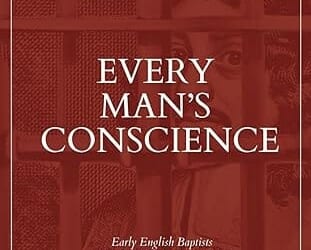A New York Times article last Wednesday teased both a fascinating mystery and its solution, “Why Did the Novel-Reading Man Disappear?” But the author, Joseph Bernstein, delivered neither, only a rambling circumstantial essay full of standard feminist drivel and distortion. The most popular novels in the 19th Century, for instance, were not written by women as Bernstein claims but by men like Dickens, Tolstoy, Dumas, Collins, Twain, and many more. The works of now beloved female novelists such as Jane Austen (Pride and Prejudice, Sense and Sensibility) and Bronte sisters Charlotte (Jane Eyre) and Emily (Wuthering Heights) took much longer to be recognized as classic — in Emily’s case, after her death.
The women who “dominate the publishing industry” are the same kind of women that dominate Hollywoke — man-bashing, woman-mutating feminists.
But then the title of the piece is false. Novel-reading men have not disappeared. Novels for men have — from mainstream publishers, if less totally than male-driven fare from Hollywoke. Bernstein touches upon the reason then instantly excuses it. “Starting in the 1980s, a new generation of women came to dominate the publishing industry.” The idea, he adds, “that liberal politics have destroyed the space for male readers — seems like a huge oversimplification. And many people who care about the future of the male fiction reader are keen to avoid it.”
Well, I care about the future of the male fiction reader. My career as a male fiction writer depends on him. So, I won’t ignore the point, I’ll address it directly. Liberal politics have destroyed the space for male readers. The women who “dominate the publishing industry” are the same kind of women that dominate Hollywoke — man-bashing, woman-mutating feminists. They’re the reason my four novels thus far aren’t published by major presses like Hachette, Harper Collins, and Random House but by boutique publishers (very discriminating ones).
A quick Groking of the Hachette Books hierarchy tells the tale. Publisher Mary Ann Naples “has extensive experience, having served as publisher at Disney Book Group (alarm bell right there) and Rodale Books … Her focus on diverse, impactful storytelling supports feminist literature.” Let’s try Hachette‘s second-in-command, Associate Publisher Lauren Marino. “Marino’s work emphasizes platformed authors with bold ideas, often addressing gender and social issues, making her a key figure in feminist publishing.” Hachette may as well post a “Male Authors — and Readers Not Wanted” warning. That includes me.
My last novel, The Washington Trail, is a private-eye mystery in the tradition of Hammett, Chandler, Spillane, and Fleming. None of those legends would stand a chance in today’s publishing monolith, nor would their famous heroes. All would be considered unprintably sexist. In fact, Ian Fleming’s James Bond novels are currently being re-edited to remove offensive content. And if James Bond can’t escape the harpies’ claws, what chance does my detective Mark Slade have? All they do is help pretty damsels in distress and appreciate femme fatales, both endeavors disallowed as toxic masculinity.
The prime reason the major publisher book is not completely closed to male fiction readers is the roster of enough moneymaking veterans in the field, like Lee Child (Jack Reacher), Stephen Hunter (Bob Lee Swagger), Jack Carr (James Reece), and Andrew Klavan (Cameron Winter). Some of these guys are getting on, however. Two modern masters of the hard-boiled genre — Nelson DeMille and Robert Parker — are dead. Replacements for them are unwelcome.
That is unless they tow the progressive line, which comes naturally to too many of them. Parker’s successor on the Spenser books, sportswriter Mike Lupica, has no regard for what made Spenser work — the spirit of Raymond Chandler. And Philip Marlowe would never question his appreciation for a beautiful client the way Lupica’s Spenser embarrassingly does. “A knockout by any measure. It was something I knew I couldn’t verbalize without sounding as if I were objectifying her, and being on my way to Weinstein Island.” Robert Parker must be cringing in his grave.
A much better writer of male-driven detective fiction — in fact the most successful author of all time — is a woman, J.K. Rowling. Yet you wouldn’t know it from her hard-boiled main hero, Cormoran Strike, a London P.I. with a prosthetic leg, his real one having been blown off in Afghanistan. Though you might guess it from his smart, beautiful partner, Robin Ellacott. Because, as with her record-setting Harry Potter books, Rowling knows how to appeal equally to male and female readers. Strike doesn’t fret about objectifying girls. Robin doesn’t fight men twice her weight. And Hachette, Rowling’s publisher, isn’t going to tell her to rebalance that.
But one San Francisco bookstore won’t be carrying her books. The Booksmith objected on social media to Rowling using her Harry Potter money to finance the J.K. Rowling Women’s Fund, stating it aims to undermine transgender rights, apparently by protecting women from “transgender women” — or men — invading their spaces. And she also lost another male celebrity, after Boy George two weeks ago, actor Pedro Pascal. Pascal called Rowling a “heinous loser.” Reading her fiction might improve his vocabulary.
Boys are better off not reading some children’s fiction, such as Born Ready: The True Story of a Boy Named Penelope, Prince and Knight, and Intersection Allies. Until last week, Montgomery County schools were forcing them to do so. On Friday, the Supreme Court decided that they didn’t have to. Now they can read good young people’s novels about manly heroes and their ladies fair. And when they get older, who knows, maybe a Sherlock Holmes, Philip Marlowe, or Mark Slade mystery. Whether angry women like it or not.
READ MORE from Lou Aguilar:
My Own Operation Midnight Hammer — Iran
Women Who Are Culture War Heroines



![Man Arrested After Screaming at Senators During Big Beautiful Bill Debate [WATCH]](https://www.right2024.com/wp-content/uploads/2025/06/Man-Arrested-After-Screaming-at-Senators-During-Big-Beautiful-Bill-350x250.jpg)












